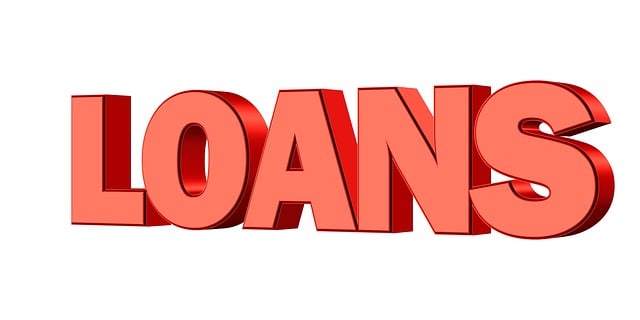Unemployment can lead to financial strain, especially with credit card debt. Credit Card Debt Consolidation offers a solution by combining multiple high-interest debts into one loan with lower rates, simplifying repayment and saving money. Personal Loans for this purpose provide a straightforward option during economic downturns, but careful consideration is crucial; personal loans still accrue interest, and unless financial stability improves, managing a single loan with higher balances could worsen strain. Securing a consolidation loan involves assessing financial situation, comparing lenders and their terms (like low rates and flexible periods), preparing essential documents, and applying through multiple lenders or using a broker service.
Unemployment can wreak havoc on personal finances, leaving many struggling with mounting debts and uncertain futures. In such challenging times, debt consolidation emerges as a lifeline, offering a path to financial stability. This article delves into the intricate relationship between unemployment and debt management, focusing specifically on Credit card debt consolidation loans. We explore strategies for navigating this process, highlighting the benefits and potential drawbacks of personal loans for debt consolidation, providing essential guidance for those seeking relief from overwhelming debt.
- Understanding Unemployment and Its Impact on Financial Health
- The Role of Debt Consolidation in Managing Unmanageable Debts
- Personal Loans for Credit Card Debt Consolidation: Pros and Cons
- Navigating the Process: Steps to Secure a Debt Consolidation Loan
Understanding Unemployment and Its Impact on Financial Health
Unemployment can significantly strain an individual’s financial health, leading many to explore options for managing mounting debts. During periods of joblessness, income often dries up, causing a cascade effect on one’s ability to meet financial obligations. This includes credit card debt consolidation, where high-interest credit card debt is consolidated into a single loan with a potentially lower interest rate, offering some relief from the pressure of multiple payments.
When unemployment persists, it can result in delayed bill payments or even default, further damaging one’s credit score and financial stability. Such circumstances often necessitate strategic approaches to debt management, such as prioritizing essential expenses, negotiating with creditors for extended payment terms, or seeking professional advice on credit card debt consolidation strategies to mitigate the impact of unemployment on long-term financial health.
The Role of Debt Consolidation in Managing Unmanageable Debts
When faced with overwhelming debt, especially credit card debt, individuals often feel trapped and helpless. This is where debt consolidation comes in as a powerful tool for regaining financial control. The process involves combining multiple high-interest debts into a single loan with a lower interest rate, making it easier to manage repayments. By consolidating credit card debt, borrowers can simplify their financial obligations and potentially save significant amounts on interest charges over time.
Debt consolidation allows individuals to take a strategic approach to paying off their debts more efficiently. Instead of juggling multiple bills with varying due dates and rates, a consolidated loan offers a straightforward repayment schedule. This simplicity can be a game-changer for those struggling with unemployment, as it provides a clear path towards financial stability. With debt consolidation, individuals can focus on rebuilding their credit and securing a brighter financial future.
Personal Loans for Credit Card Debt Consolidation: Pros and Cons
Personal Loans for Credit Card Debt Consolidation offer a straightforward path to financial management, especially during challenging economic times like high unemployment rates. The primary advantage lies in streamlining multiple credit card payments into one manageable loan with potentially lower interest rates. This consolidation can simplify budgeting by reducing the administrative burden of tracking various due dates and minimum payment requirements from different cards.
However, careful consideration is essential before opting for this method. While it provides relief from the chaos of multiple debts, personal loans still incur interest charges, adding to the overall cost over time. Additionally, if an individual’s financial situation doesn’t improve post-unemployment, managing a single loan with potentially higher outstanding balances could lead to further financial strain. Therefore, debt consolidation should be a strategic move accompanied by a robust plan for long-term financial recovery and stability.
Navigating the Process: Steps to Secure a Debt Consolidation Loan
Navigating the Process: Steps to Secure a Debt Consolidation Loan
The first step in securing a debt consolidation loan is to assess your current financial situation. Calculate all your debts, including credit card balances and other loans, and determine your overall debt burden. This will help you understand how much you can borrow and afford to repay without causing further financial strain. Once you have a clear picture of your finances, compare different lenders and loan options. Look for terms that suit your needs, such as low interest rates, flexible repayment periods, and minimal fees.
Next, prepare your documents and credit history. Lenders will require proof of income, employment details, and sometimes, a co-signer with strong credit. Ensure your credit report is accurate by checking it regularly and disputing any errors. A good credit score increases your chances of getting approved for a loan at favorable terms. When ready, apply for the consolidation loan through multiple lenders or consider using a broker service that can match you with suitable options. Compare offers carefully, considering all the terms and conditions before making a decision.
Unemployment can significantly strain financial health, but understanding its impact and leveraging tools like debt consolidation can help individuals regain control. By consolidating credit card debt, one can simplify repayment, reduce interest rates, and free up funds for stability and growth. Personal loans for debt consolidation offer a structured approach to manage unmanageable debts, albeit with varying pros and cons. Navigating the process involves careful consideration and informed decisions, ensuring a secure and beneficial loan that paves the way for financial recovery and prosperity.
